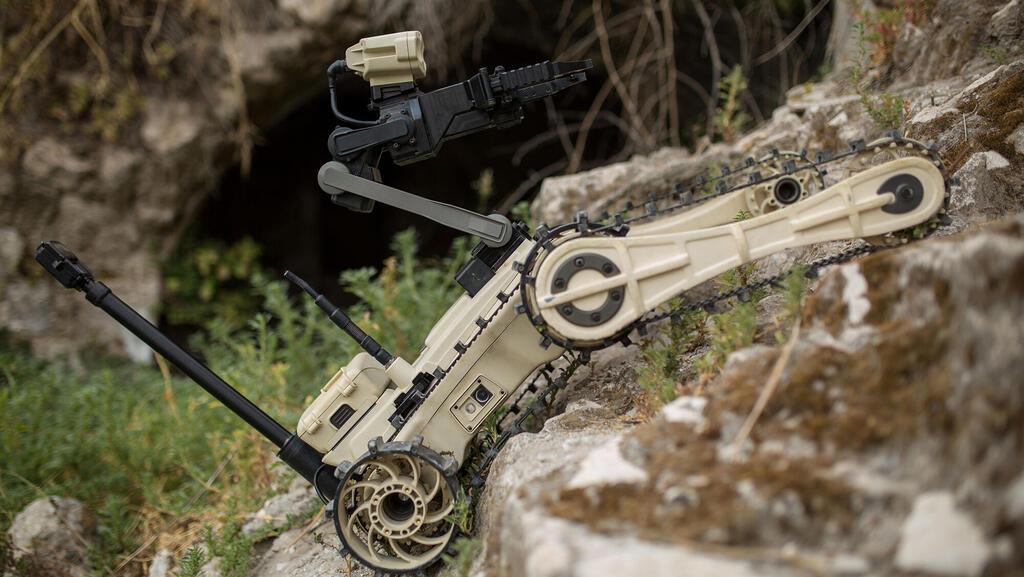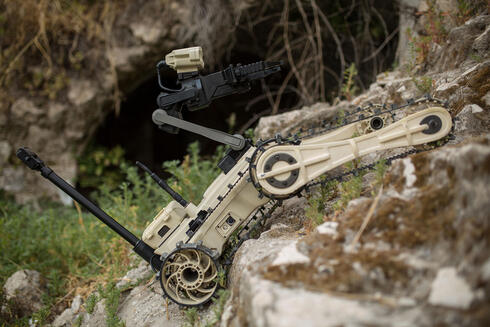
How the Iran conflict is shaping Israel's high-tech landscape
From defense tech to AI, Israeli entrepreneurs are finding new paths amid uncertainty.
It is often said that every crisis also presents an opportunity. The ongoing war with Iran, the full extent and consequences of which remain uncertain, undoubtedly qualifies as a crisis, and possibly even a turning point. In previous economic crises, including the pandemic and the ongoing war in Gaza, opportunities emerged alongside the difficulties: startups were founded, existing companies pivoted, and some even acquired competitors. People made career shifts, learned new skills, and founded businesses, ultimately growing through adversity.
We reached out to partners at venture capital funds that invest across various sectors and stages to explore where the opportunities for Israeli high-tech may lie amid this crisis, particularly those that may not be immediately obvious.
"While the ongoing conflict between Israel and Iran poses a real existential challenge, it is also accelerating a profound transformation in how the State of Israel perceives innovation, from the civilian to the defense market," says Moran Chamsi, Managing Partner at Amplefields Investments. According to Chamsi, it is precisely in times of distress and pressure that a new industry is emerging: "Resilience Tech," a field that connects civil-defense innovation with national resilience and economic growth.
The ongoing conflict, along with the shadow of the war in Gaza, will make it more difficult for entrepreneurs to secure funding in the short term, says Raz Mangel, a partner at Greenfield Partners. "Although Israel has the upper hand, investors globally are likely to adopt a more conservative approach until the situation stabilizes," he notes. "However, in the longer term, the situation will ease, and it will become easier for entrepreneurs to raise funds."
"Israeli entrepreneurship and technology have received a tremendous boost, even among entrepreneurs who are not directly involved in defense or cyber. These entrepreneurs are turning to areas like AI, data, technological infrastructure, and deep tech," he adds. "Investors are aware that Israeli entrepreneurs have served in the military and understand the quality of the human resources in the IDF. The local tech industry has already demonstrated tremendous resilience over the last two years. This will make it easier for more people to embark on entrepreneurial ventures and secure funding."
The war with Iran highlights the superiority of Israeli defense technologies, but its high costs underscore the need for streamlining, which in turn opens the door to technological innovation. "The war economy needs to become more efficient: from missiles that cost tens of millions of dollars to technologies like lasers and cyber, which are far less expensive," says Shay Michel, Managing Partner at Merlin Ventures. "A country that controls cheap and efficient technology will be able to sustain long-term operations and maintain a functioning economy. With the right technologies, the economic burden can be reduced, allowing the economy to continue to operate," he explains.
Related articles:
Here are some areas that may see growing demand in the wake of the war:
Smart Home Defense – Real-Time Artificial Intelligence
"The vision of a 'digital Iron Dome' for the home front is becoming a reality," says Chamsi. "AI-based systems are being developed to manage emergency scenarios in real time, directing citizens to available shelters, calculating hospital capacities, and efficiently dispersing the population based on local resources." According to him, Israeli startups are developing tools that integrate urban data, real-time forecasts, and security warning systems. This new market offers both economic potential and national value.
Communications
"In recent days, we've seen that whoever controls communications controls many aspects of warfare," Michel says. He cites Elon Musk’s Starlink as an example, noting that in the current conflict, Musk provided internet access through Starlink to bypass government censorship. The same technology was crucial in Ukraine during the Russia-Ukraine war, enabling restored communications for both military and civilian purposes, including drones and infrastructure maintenance. "The ability to provide internet even when a government tries to shut it down is a massive disruption and a strategic advantage. Technologies in this field will continue to evolve, especially in the near future," he says.
Gaming
Surprisingly, the gaming sector has seen a boost during this time. Historically, gaming has proven resilient in economic and geopolitical crises, with people turning to games for escape, community, and stress relief. This has led to increased engagement, in-game spending, and improved user acquisition dynamics for distributors and platforms.
"In general, investors are feeling more confident, as the risk of war with Iran, a risk that was previously difficult to quantify, has now materialized, and Israel has proven its resilience," says Barak Rabinowitz, Managing Partner at F2 Venture Capital.
Israel’s gaming ecosystem is particularly well-positioned to benefit. The country is a global leader in gaming infrastructure and monetization, with companies like Playtika, Moon Active, and Overwolf at the forefront. For instance, Playtika generates over $2.5 billion in annual revenue, and Moon Active’s Coin Master has surpassed $2 billion in total revenue. Gaming is no longer just entertainment; it’s a data-rich, revenue-generating industry that continues to thrive even as other sectors face challenges.
"From a venture capital perspective, we see unique opportunities to invest in Israeli entrepreneurs developing next-generation gaming tools, AI-powered content engines, and real-time multiplayer platforms, often with leaner teams and scalable economics," Rabinowitz explains.
Prop-Tech
"Secure commercial real estate will become the next big trend. The growing demand for secure spaces - like parking garages, basements, and emergency buildings - is just the beginning," says Chamsi. "The real innovation lies in the integration of smart real estate systems. For example, sensors that monitor occupancy and feed information into city management systems, modular buildings that can be quickly assembled or dismantled, and architectural designs that allow spaces to transform from everyday use to emergency facilities with the touch of a button." This is a growing market with opportunities for developers, architects, and tech companies alike.
GPS Disruptions
Following the attack in Iran, Israel reported widespread GPS disruptions. These disruptions, often used as a defensive measure during combat, can affect civilians who rely on GPS for navigation or ordering services. "If GPS disruptions were previously implemented universally, I predict that future technologies will allow for more targeted disruptions, affecting only specific users while maintaining quality of life for others," says Michel.
Dual Use: Military and Civilian Applications
"We are seeing a pattern that has emerged during the conflict and will intensify during the war with Iran: companies that developed commercial technology are now also adapting these innovations for the defense sector - a trend known as dual-use technology," says Mangel. "For instance, automotive companies are applying their innovations to the defense sector, while other businesses are shifting focus to sell to governments rather than just civilian markets."
Autonomous Transportation and Robotics on the Battlefield
Israel is at the forefront of robotics, with drones, autonomous vehicles, and military robots now performing tasks that previously required human intervention, such as remote combat, evacuations, intelligence gathering, and precision strikes. "Israel leads in the development of unmanned vehicles capable of operating in enemy territory under complex conditions. The vision? A smart battlefield where autonomous systems are integrated with real-time decision-making - a model already attracting international interest and foreign investment," says Chamsi.
Solutions 'From the Field'
"As we've seen since the war in Gaza, returning soldiers often bring back insights into problems that need solving and challenges that must be addressed," says Alon Kantor, Partner at 10D, a leading defense investment firm. "If the conflict with Iran persists, we are likely to see a convergence of military and business sectors, leading to new solutions, such as computer vision, energy technologies, and drones."
"The knowledge gained on the battlefield is driving technological entrepreneurship in Israel, turning it into a kind of Silicon Valley for defense-tech," says Lital Leshem, Co-founder of Protego Ventures, which focuses on defense-tech investments. "The campaign against Iran highlights the increasing dependence of countries, especially in the Middle East, on security innovation to maintain stability and sovereignty."
The main advantage of Israeli entrepreneurs is their hands-on experience. "When you’re in the field, you need practical solutions that work quickly. This is the opportunity that Israeli entrepreneurs now have - to turn operational challenges into real-world technological solutions at an unprecedented pace," Leshem concludes.
